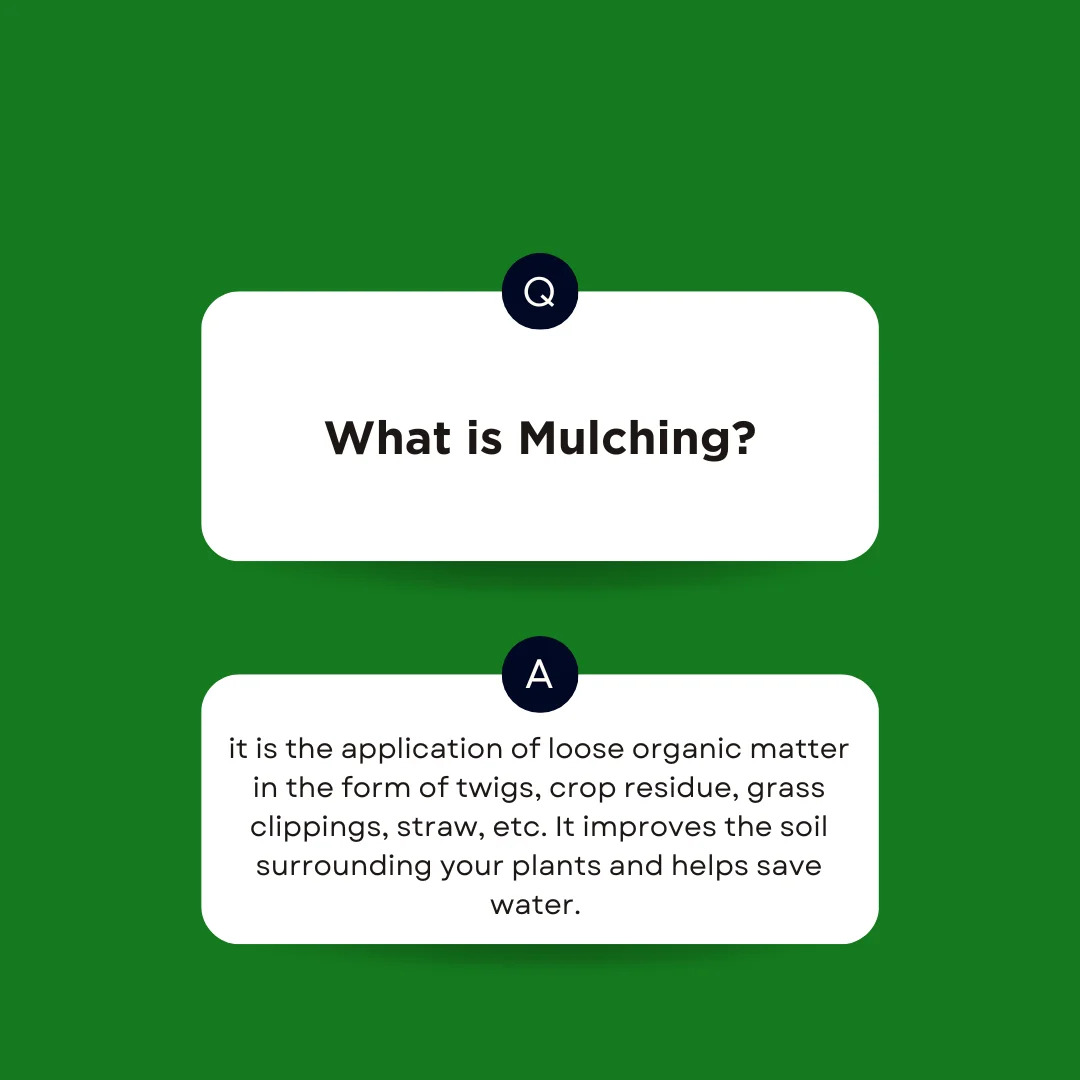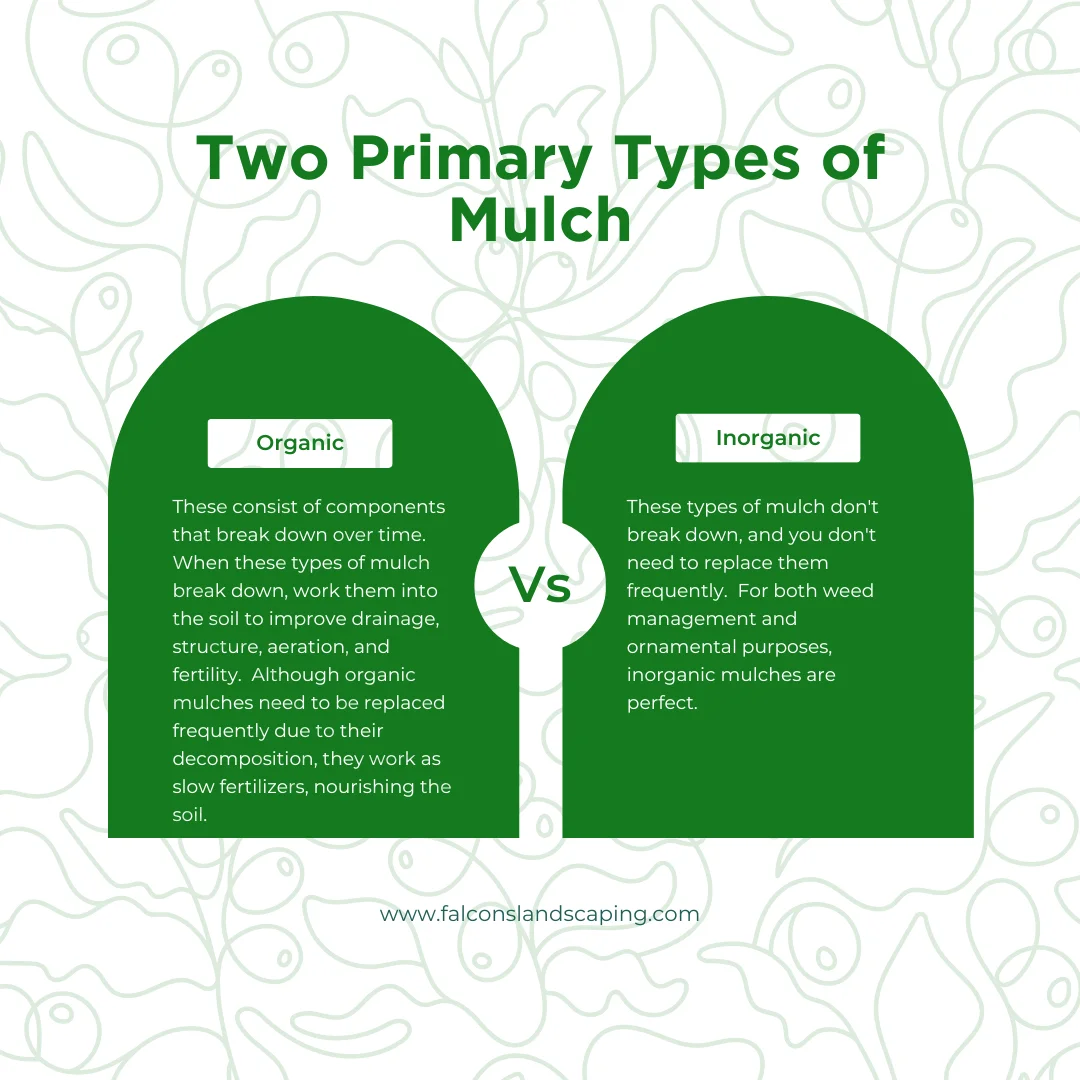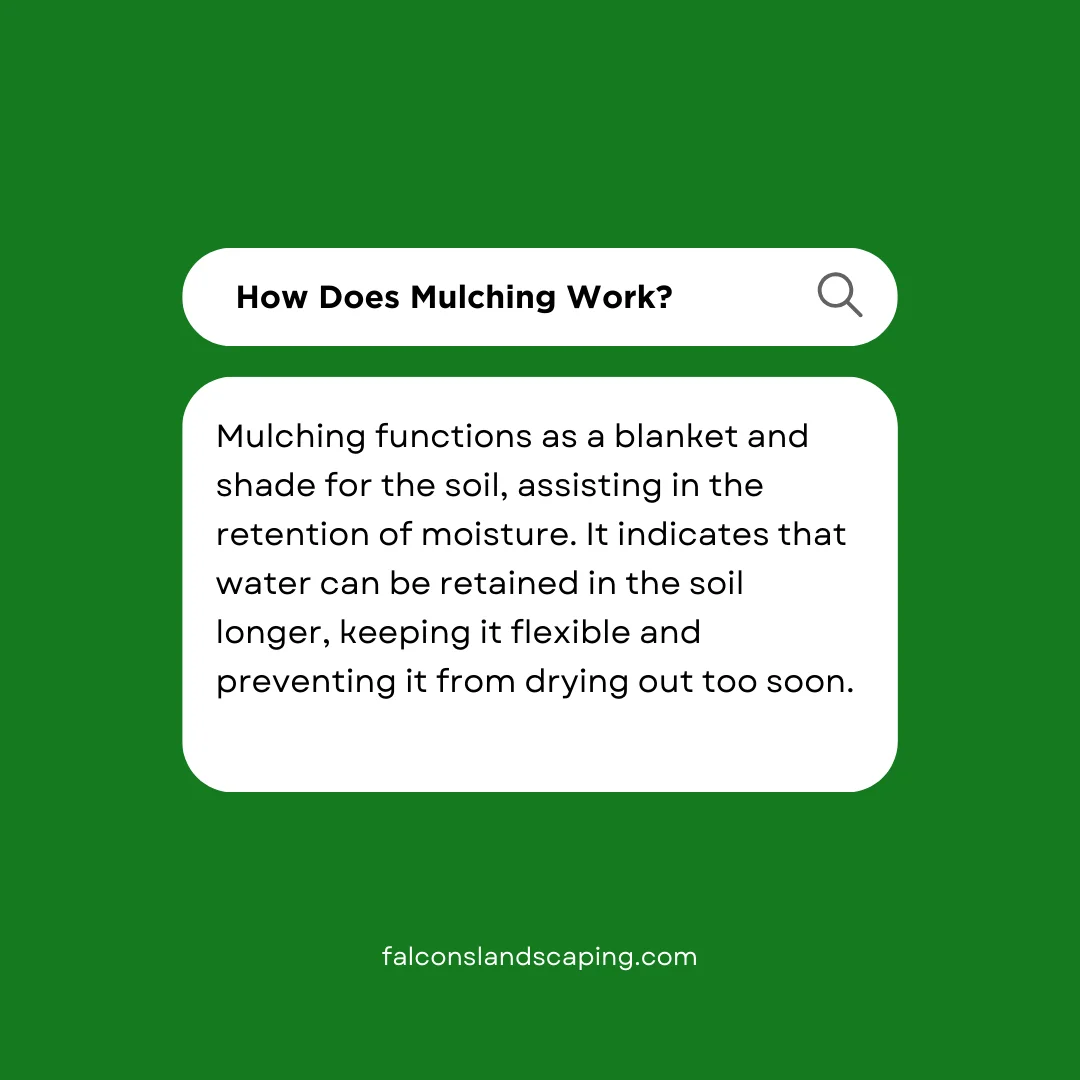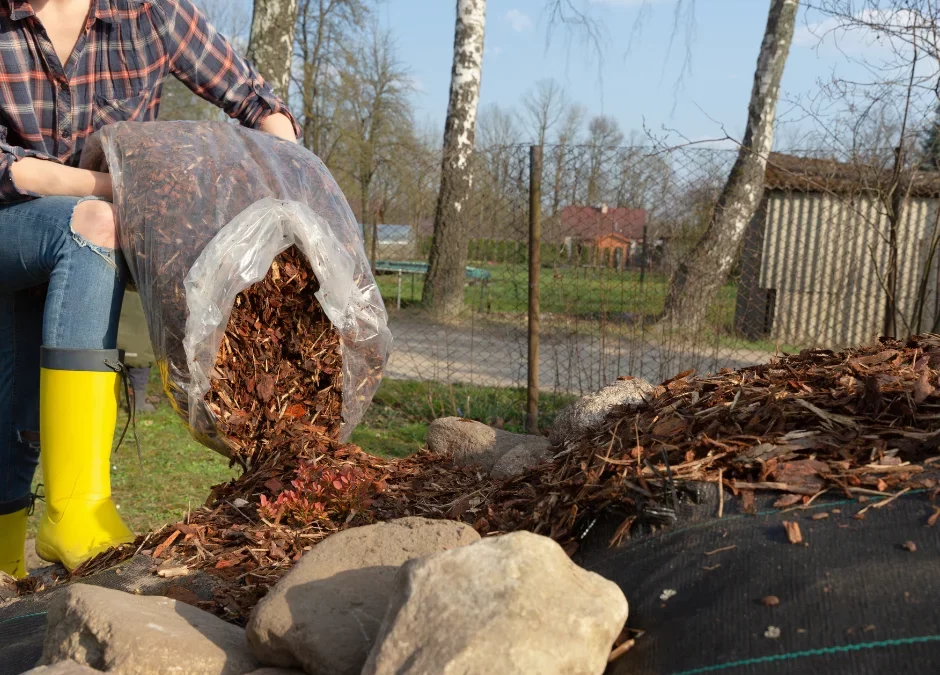Are you a new gardener and have been hearing a lot about mulch lately?
We will tell you what is mulching and why it makes rounds in the realm of gardening.
If many people in your neighborhood use mulch, it is because different types of mulch have different advantages.
By large and far, it protects the soil. And the organic mulch supplies nutrients, making your lawn green and healthy.
Without delay, let’s dive into “what is mulching,” its types, and the famous question, “How does mulching work?”.
Read More: Mulching Vs. Bagging: A Detailed Comparison
What is Mulching: Explained Briefly

A simple answer to what is mulching would be that it is the application of loose organic matter in the form of twigs, crop residue, grass clippings, straw, etc.
You can add various types of mulch as topsoil to your lawn.
Mulching improves the soil surrounding your plants and helps save water.
It also makes your garden look nice and neat and can cut down on the time you spend on weeding and watering.
Mulches aid in the retention of soil moisture in the summer, allow rainwater to permeate the soil during the winter, inhibit the growth of weeds, and shield plant roots during the winter.
Two Primary Types of Mulch

Primarily, you will find two types of mulch–organic and inorganic.
1. Organic Mulch
These consist of components that break down over time.
When these types of mulch break down, work them into the soil to improve drainage, structure, aeration, and fertility.
Although organic mulches need to be replaced frequently due to their decomposition, they work as slow fertilizers, nourishing the soil.
The types of mulch obtained from plant byproducts include:
- Hardwood and softwood chips
- Bark
- Evergreen needles
- Leaves
- Grass clippings
- Compost mixtures
- Newspaper
- Cardboard
2. Inorganic Mulch
These types of mulch don’t break down, and you don’t need to replace them frequently.
For both weed management and ornamental purposes, inorganic mulches are perfect.
Some of the inorganic types of mulch include:
- Rock
- Stone
- Lava rock
- Crusher dust
- Recycled rubber
- Landscape fabrics
The cost of different types of mulch varies greatly. To get an estimate on how much money you need to mulch your lawn, read our blog on the cost of mulch.
Now that you know what is mulching, let’s move to the other section that discusses how mulching works.
How Does Mulching Work?

Mulching functions as a blanket and shade for the soil, assisting in the retention of moisture.
It indicates that water can be retained in the soil longer, keeping it flexible and preventing it from drying out too soon.
Mulching also promotes plant growth by creating a barrier against harsh weather and prolonged precipitation.
Earthworms and other soil-dwelling creatures gradually convert plant matter used for mulching into beneficial natural fertilizers and plant nutrients.
People who prefer organic lawn care must learn how does mulching work to achieve the best lawn in the area.
When you’re ready to start mulching, keep the following factors in mind to maximize the results:
How Does Mulching Work in Different Seasons?
Spring and summer are the ideal seasons for mulching.
Mow frequently to get the greatest benefits. Depending on how quickly your grass is growing, you may want to mulch it once or twice a week. However, ensure that the grass is clipped to no more than 3 cm.
How Does Mulching Work for Wet & Dry Grass?
Working on wet grass is never a good idea. As soon as the grass is dry, begin mulching. The grass clippings may disperse widely over the lawn and eventually sink to the ground between the grass blades.
Why Mulching Needs Extra Care
When applied incorrectly, mulch can weaken trees and leave them more susceptible to disease and termite infestation.
When you apply various types of mulch in thick layers, it will keep weeds out of the sun, improve soil insulation, and slow down water evaporation.
Additionally, there is a tiny risk of introducing honey fungus while using woodchips.
The microorganisms can be stimulated by using newly chipped debris, such as woody prunings or grass clippings.
That can deplete nitrogen stocks, making less nitrogen available for plant growth.
Therefore, before usage, store any recently chipped material for a few weeks.
Mulches don’t need to be removed to apply fertilizer. In late winter, fertilizers are applied on top of mulches, and rain then washes them down to the roots of the plants.
After manually pulling weeds, spread another layer of new mulch on top.
Because you may apply a new layer to replace the one that has entirely decomposed, organic types of mulch can be easier to maintain.
If gravel is not applied thickly, it can occasionally mix with the underlying soil, which will encourage surface weeds.
Some people may complain about white fungal mycelium after laying organic types of mulch. There’s no need to remove the mulch or white fungal growth; this is not a cause for concern.
How to Mulch Without Any Mistakes
Mulch helps slow down the rate at which soil dries up, but it can also create anaerobic conditions that can harm roots.
To prevent this, make sure not to pile mulch too high; for most plant species, two inches is plenty.
Remember that certain mulches, such as sawdust or fresh wood chips, may actually cause the soil to lose nitrogen.
In certain situations, you may have to make up for this loss by using more fertilizer.
Last but not least, be careful when you mulch around trees. This will help prevent disease and insect infestations.
Mulch may be a terrific method to improve the general health of your garden and conserve water if installed and maintained properly.
FAQs
Do organic types of mulch attract fungus?
Yes, many fungi help in the decomposition of wood or feed on the microorganisms present in mulch.
How to remove fungus from different types of mulch?
The simplest method is to rake the mulch and replace it with a new layer.
Can mulch kill the plant?
If the layers of various types of mulch are too deep, excess moisture starts building up, causing plant stress and root rot.
Summary
After reading this blog, we hope you got the answer for what is mulching.
If you are convinced and need a hand, contact expert mulching service providers.
In the long run, landscaping and mulching are investments that are worth the amount you spend on them. And hiring a professional guarantees that you do what is best for your lawn.

